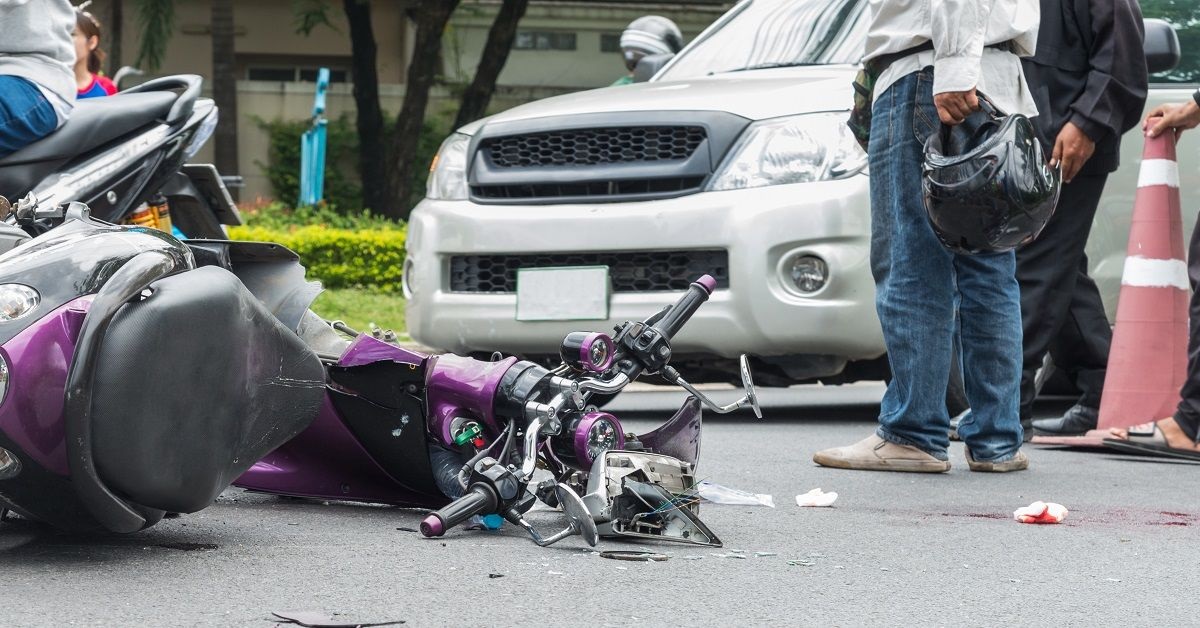
The common belief that motorcycles are unsafe isn’t entirely untrue. While they’re not inherently unsafe, it is up to the rider to ensure maximum safety for themselves and the passenger. When riding a motorcycle, wearing protective gear is of utmost importance. However, upon an unfortunate incident such as a motorcycle accident, bikers are often the ones who sustain the most damage. Severe damage can cause metal trauma, physical discomfort and even loss of wages. In 2022, there were over 10,000 motorcycle accidents in California alone.
Motorcycle crashes can have drastic consequences. When individuals are involved in a motorcycle accident of any severity level, their first priority should be seeking help and ensuring their well-being. At the same time, proving fault is crucial for matters involving insurance claims and seeking reimbursement for losses. At a certain point in your legal journey, the defendant will most likely have to hire a motorcycle accident lawyer. This article provides insights into the process of demonstrating fault in motorcycle crashes, highlighting steps and evidence that can support your case.
The Significance of Demonstrating Fault
Confirming fault in a motorcycle crash is vital to determine accountability and liability for the event. Whether you are the rider or another party implicated, proving fault guarantees a resolution or decision. By demonstrating that someone else’s actions or negligence caused the crash, you may qualify for compensation covering bills, lost earnings, property harm, emotional distress, and more.
Collect Evidence at the Scene
If feasible, collect evidence right after a motorcycle crash happens before authorities arrive at the scene. Capture photos or videos of the crash location from different perspectives to document aspects like road conditions, tire marks, obstacles (if any), traffic signals/signage related to the incident, and any visible damage to vehicles involved.
Gathering Witness Accounts
It’s important to talk to individuals who saw the accident happen and ask them for their statements. They should share what they saw before and during the collision. Ensure that you get their contact details so your lawyer or insurance adjuster can follow up if needed.
Documenting Injuries
Properly documenting any injuries from the accident is crucial. Seek help immediately, even if your injuries seem minor. Medical records not only help with your recovery, but they also serve as legal proof to support your claim by showing evidence of injuries linked to the collision.
Obtaining Police and Accident Reports
Police reports can be useful in determining fault as they document findings and any citations given at the scene. Ask for a copy of the police report. The report typically includes details like weather conditions at the time of the accident, notes from officers about what they observed, and key information gathered during their investigation.
Accident Reconstruction
In cases where the fault is unclear, accident reconstruction might be required. Make sure to hire an accident reconstruction specialist who can analyze the accident by considering factors like the positions of vehicles, skid marks, speed, and physical evidence at the scene. Their knowledge can help identify elements that demonstrate negligence or responsibility.
Gather Other Relevant Documentation
Additionally, gather any paperwork to strengthen your case further. This includes bills, repair estimates for your motorcycle or damaged property from the accident, and proof of lost wages if applicable. These documents can support your claim by showing the damages caused by the incident.
Conducting a Thorough Investigation
Conducting an investigation is essential to proving fault in a motorcycle accident. This involves taking photos of the accident site collecting statements from witnesses reviewing any video footage, and obtaining evidence like data from vehicle black boxes or phone records. The more detailed the investigation, the better your chances of establishing fault.
Engaging Expert Witnesses
Expert witnesses can also play a role in determining fault in a motorcycle accident. In certain situations, these individuals with expertise in accident reconstruction, mechanical forensics, or medical fields related to injuries can provide vital insights. Their expert viewpoints and testimonies can add credibility and technical analysis to support your argument and prove liability effectively.
In summary
Demonstrating fault in a motorcycle collision necessitates a thorough approach. By adhering to the steps outlined in this article, individuals involved in incidents can gather evidence, bolster their case, and potentially secure just compensation for their damages. From documenting the accident scene to gathering witness statements, police records, and pertinent medical records, each piece of evidence plays a role in establishing fault. In cases involving disputed liability, bringing in expert witnesses and conducting an investigation can offer valuable perspectives and technical insights. Laws on negligence could affect the outcome of your case depending on the jurisdiction. Understanding these laws and how they allocate percentages of fault is vital for seeking compensation if you are deemed partially at fault.





